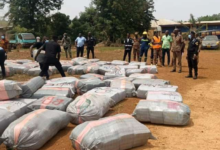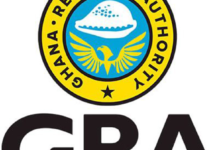
A Total of 477,485 hectares of land area has been cultivated with various trees under the Trees-on-farm component of the National Afforestation/Reforestation Programme, the Minister of Lands and Natural Resources, Samuel Abu Jinapor, has disclosed.
The tree-on-farm component of the afforestation programme introduced in 2017seeks to plant 18 to 21 forest trees per hectare within farms or 132 per hectare along the boundaries of farms.
In an answer to a question asked of him by the Majority Chief Whip, Frank Annoh-Dompreh in Parliament on Thursday, Mr Jinapor said of the total area cultivated, 126,348 was planted in 2017; 103,549 in 2018;67,823 in 2019; 150,307 in 2020 and 29,456 in 2021.
“Mr Speaker, the area of land cultivated between 2017 and 2021 is far more than the total area of forest land cultivated since independence.
“Between 1963 and 1987, an estimated area of 19,300 hectares was cultivated under the Government Plantation Programme and between 2002 and 2016, an estimated area of 138,000 was cultivated under the National Forest Plantation Development Programme making a total of 157,300 hectares,” he said.
According to Abu Jinapor, who is also the NPP MP for Damongo, the trees-on-farms intervention is crucial to restoring Ghana’s lost forest cover and would provide benefits within agricultural landscapes.
“Mr Speaker, the government of President Nana Addo Dankwa Akufo-Addo will continue to aggressively implement this programme together with other interventions like the Forest Plantation, Enrichment Planting, the Green Ghana Project, the REDD+ Strategy, the Forest Investment Programme and the Cocoa and Forest Initiative to restore our lost forest cover and contribute to the global fight against climate change.”
In another question on what form of support the government had given to the local market in terms of lumber and plywood, Mr Jinapor said the Forestry Commission had adopted the Domestic Timber Trade Network Process to effectively regulate and promote trade in legal timber on the domestic market.
Other interventions, he said included the Domestic Timber Inspection Certificate to streamline the operations of the domestic market, development of a real-time Un-removed Yield Portal to address challenges of raw material supply along the Domestic Market value chain and commenced the process to establish Legal Wood Depots through a Public Private Partnership.
“Additionally, the Forestry Commission, in collaboration with the Kumasi Wood Cluster Association, has developed a mobile application to help capture and store data on the sale of timber and timber products on the domestic timber markets throughout the country,” the minister outlined.
These interventions and others, he said significantly increased the volume of legal timber and timber products supplied to the domestic market from 288,376 cubic meters in 2019 to 352,376 as at the end of the third quarter of 2021 with an estimated end of year volume of 470,610 cubic meters.
The number of plywood manufacturing companies operating in the country, he disclosed, has increased from 23 in 2019 to 29 in 2021.
“These phenomena are responsible for the steady growth in the volume of plywood supplied to the domestic market from 2019 till date. Currently, the total volume of plywood produced by these companies far exceeds local demand, thereby allowing for overland export to ECOWAS sub-regional markets such as Burkina Faso, Mali and Niger,” he told the House.
BY JULIUS YAO PETETSI






